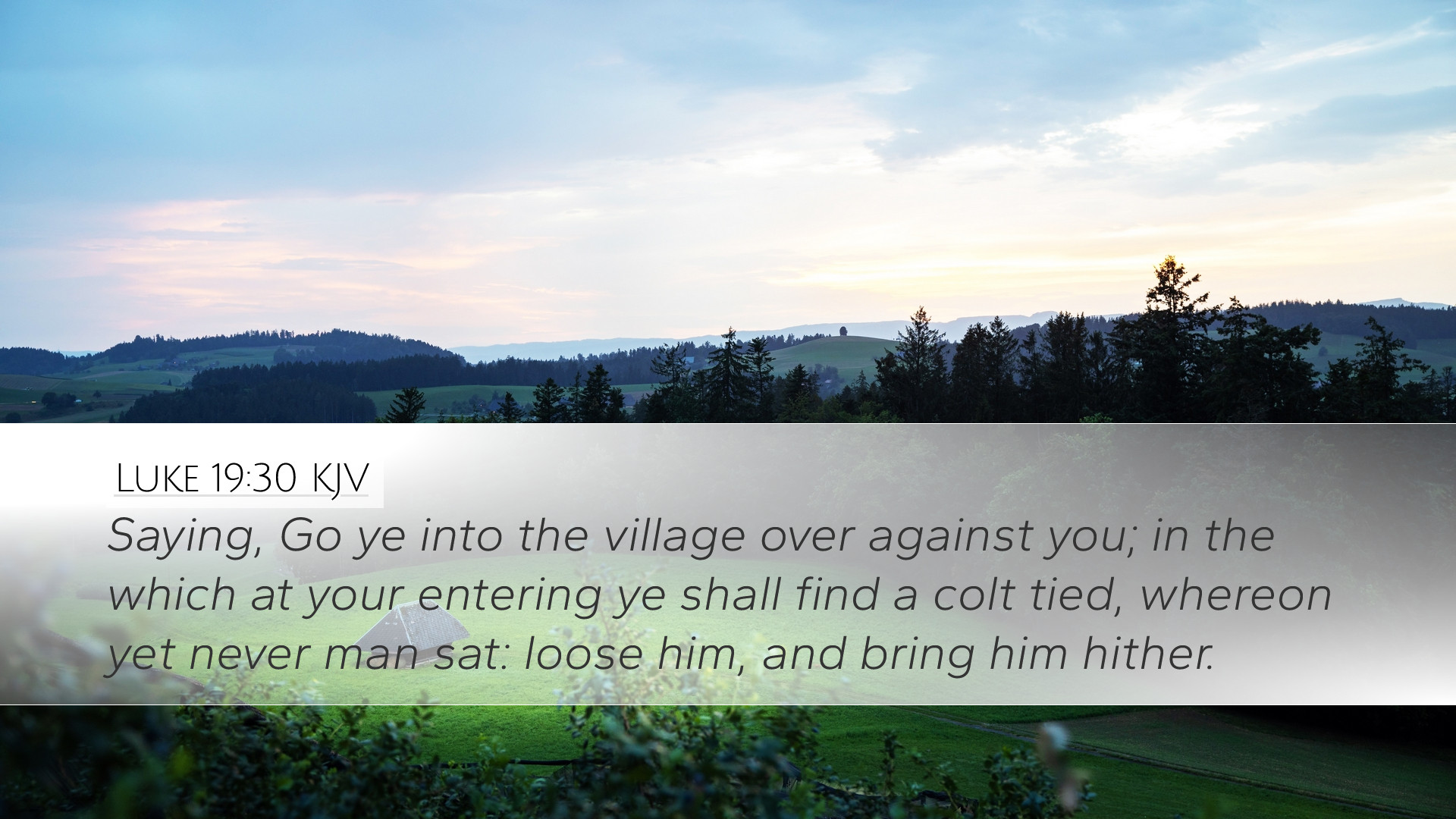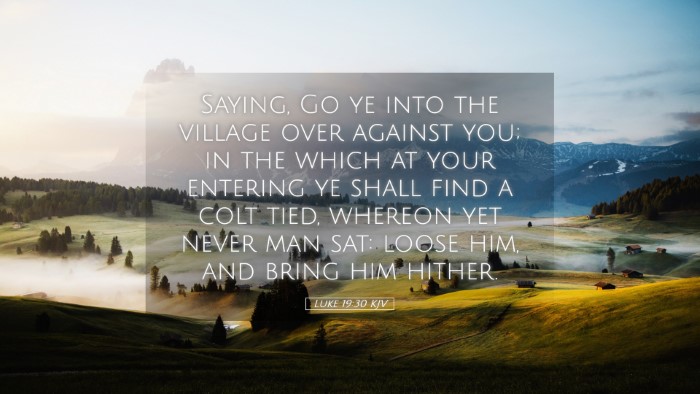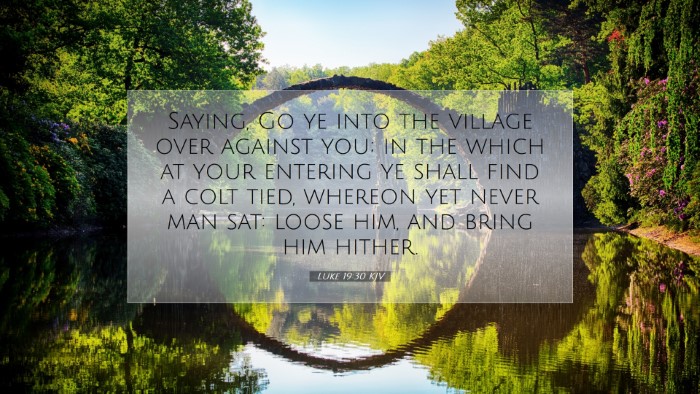Commentary on Luke 19:30
Luke 19:30 states:
"Go ye into the village over against you, in the which at your entering ye shall find a colt tied, whereon yet never man sat: loose him, and bring him hither."
Introduction
This verse is part of the narrative often referred to as the Triumphal Entry, where Jesus instructs His disciples to procure a colt for His entry into Jerusalem. This event marks the beginning of the Passion Week and serves both a prophetic and practical purpose within the Gospel accounts.
Historical Context
In the context of Luke’s Gospel, Jesus had been journeying toward Jerusalem, with increasing anticipation of His impending sacrifice. The choice of a colt is significant, as it fulfills the prophecy of Zechariah 9:9:
"Rejoice greatly, O daughter of Zion; shout, O daughter of Jerusalem: behold, thy King cometh unto thee: he is just, and having salvation; lowly, and riding upon an ass, and upon a colt the foal of an ass."
Exegesis and Theological Insights
1. The Instruction to the Disciples
Matthew Henry emphasizes the obedience of the disciples in following Jesus' instructions. Their task was more than merely fetching a colt; it was an act of faith and loyalty. The instruction reflects a divine plan that they were part of, demonstrating that Jesus had foreknowledge of the events to transpire.
2. The Colt as Symbolism
The colt, never ridden before, symbolizes purity and a new beginning. Albert Barnes notes that the fact that it had never been used also signifies its suitability for a sacred purpose. Jesus’ choice of a humble animal instead of a powerful steed illustrates His mission of peace rather than conquest.
3. The Act of Loosing the Colt
The act of loosing is not just physical; it implies liberation. Adam Clarke interprets this act as a metaphor for the liberation that Christ offers to humanity. The colt is tied, symbolizing the bondage of sin, and Jesus’ command to loose it signals the breaking of chains that sin has bound us with.
4. Prophetic Fulfillment
The Gospel of Luke presents this event as a fulfillment of prophecy, reinforcing the notion that Jesus’ mission was deeply rooted in the Hebrew Scriptures. The disciples’ actions validated His Messiahship as they followed His precise directions, which were foretold.
Albert Barnes further remarks on the significance of the colt’s location – a village “over against” them, which indicates divine preparation. Nothing occurs outside God's sovereign plan, symbolized by the colt waiting for them at the appointed time.
5. Implications for Discipleship
The obedience displayed by the disciples serves as a model for all followers of Christ. Matthew Henry stresses that even seemingly mundane tasks, when done in obedience to Christ’s command, become part of a greater purpose. Discipleship involves a willingness to act in faith, trusting in God's plan even when the purpose isn’t fully understood.
Conclusion
Luke 19:30 subtly incorporates profound theological truths and implications regarding Jesus' nature as the Messiah. The preparation for the Triumphal Entry encapsulates the themes of obedience, liberation, prophecy, and the nature of Christ's kingship. For pastors and theologians, this verse is a rich resource for exploring the ways in which God orchestrates events toward His redemptive plan.
Applications for Study
- Understanding Obedience: Reflect on what it means to obey God's call in daily life and ministry.
- The Nature of Christ: Explore the significance of Jesus riding a humble colt rather than a majestic horse.
- Prophetic Literature: Study further the Old Testament prophecies that Jesus fulfilled during His ministry.
- Discipleship: Discuss how the act of following God's will can lead to greater purposes beyond immediate sight.
- Symbolism in Scripture: Consider the meanings of various animals and objects used symbolically in biblical texts.


